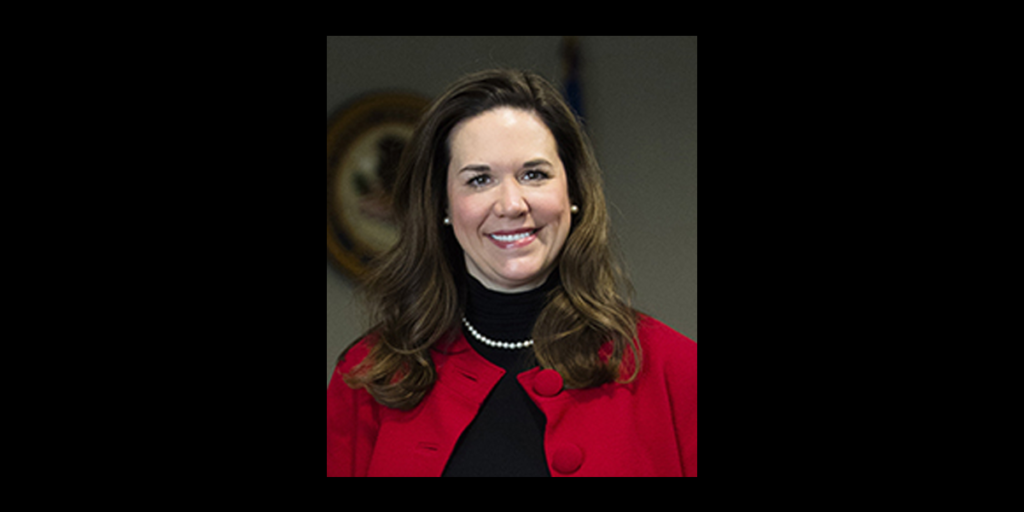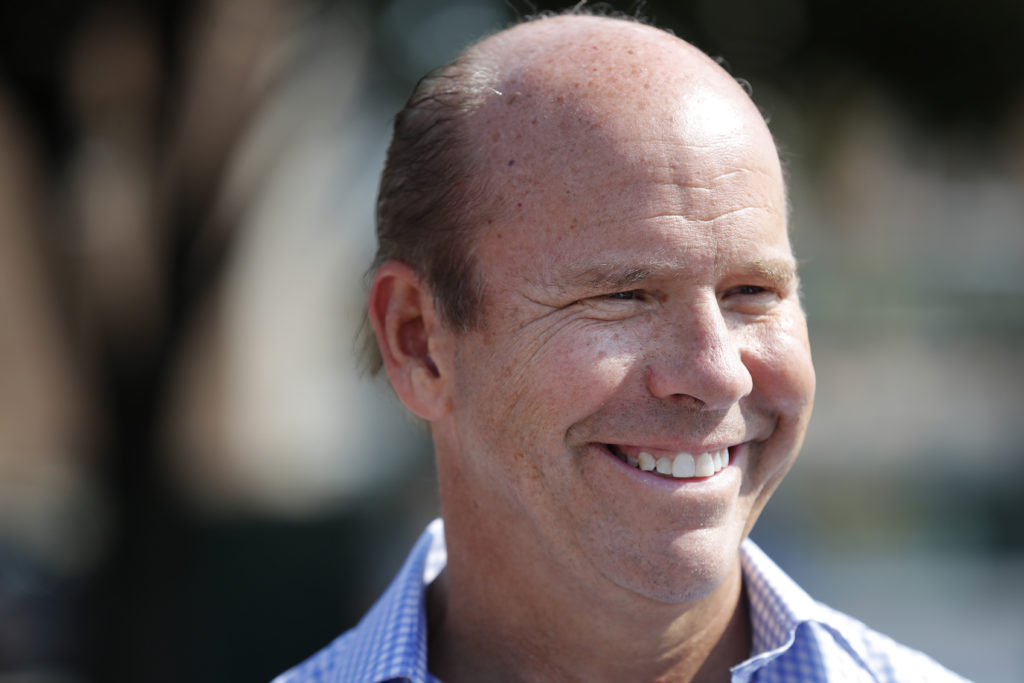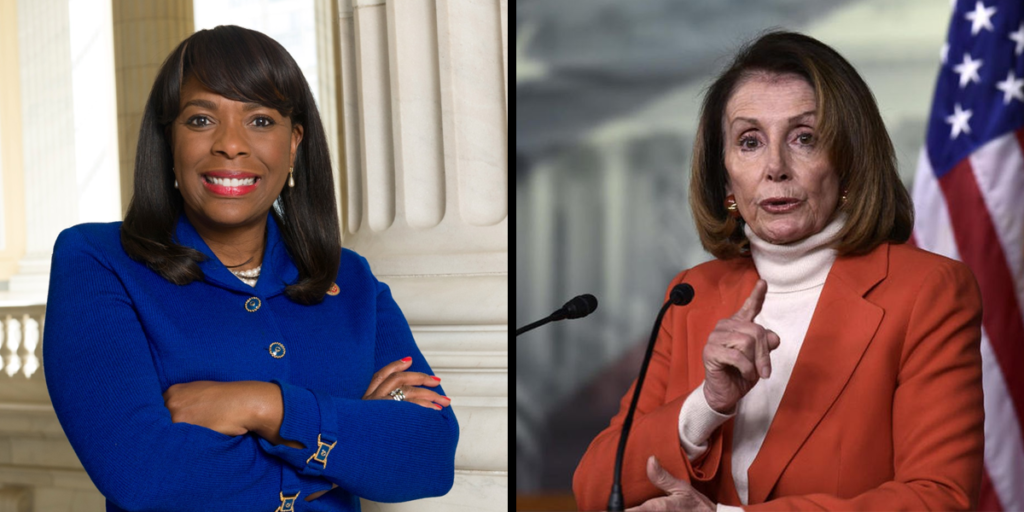Lawyer: Donald Trump provides written answers to Robert Mueller questions

Lawyers for President Donald Trump say they’ve provided the special counsel’s office with written responses to questions on Russian election interference. The answers are an important milestone in Robert Mueller‘s probe, marking the first time the president is known to have described to investigators his knowledge of key moments under scrutiny by the special counsel’s office. Trump told reporters last week that he was answering the questions himself. Jay Sekulow, a lawyer for Trump, said in a statement that the answers were provided Tuesday. It is not clear what other information Mueller’s office will seek. This round of questioning was limited to the general topic of whether the Trump campaign coordinated with Russia. But Mueller’s team has also wanted to question Trump about whether he committed obstruction of justice. Republished with permission from the Associated Press.
Ross Marchand: Amidst abysmal finances, postal reform is a must

The United States Postal Service (USPS) continues to bear the consequences of poor financial management to the detriment of taxpayers and consumers across the country. The agency reported yet another financial loss this week, bringing total net losses for the year to $3.9 billion, an increase of $1.2 billion compared to last year. To outside observers of this fiscal malaise, better choices at every step of the way could have averted subsidization via low-interest Treasury loans. By adapting stronger efficiency guidelines and making a greater effort to reign in crony deals, the USPS can finally tackle its mammoth debts. Despite the misleading pronouncements of senior USPS officials, taxpayers would save billions of dollars per year from a better-fun fiscal ship. To listen to the claims of USPS top brass, the agency is doing everything it can to “put information and technology at the center of its business strategies” in delivering mail to hundreds of millions of Americans. Unfortunately, successive reports by the Office of the Inspector General (IG) shed considerable doubt on this hype. The USPS, for instance, is supposed to use a modeling tool to sort out job assignments based on mail processing volume, but regular deviations result in increased overtime and lower employee productivity. The IG estimates that a more thorough use of its own modeling tools would save the USPS $420 million in labor costs alone. But assigning employees requires a thorough, well-documented hiring process in the first place. On this basic function, the USPS again comes up short. In the IG’s analysis of non-career employee background screening in the Los Angeles District, the IG found that HR officials were not doing their due diligence. Of the 33 hired applicants analyzed in the report, 11 had “automatic disqualifying driving eligibility factors” and 7 had “disqualifying criminal suitability factors.” Maybe bad employees slip through the cracks, but at least performance evaluation reviews can be used to hold them accountable. Too bad, then, that “13 of 13 (100 percent) 90-day performance evaluation reviews were not maintained in the electronic official personnel file, as required.” This permissive culture and poor documentation lead to further poor behavior, contributing to the USPS’s mammoth financial problems. Too often contractors fail to satisfactorily perform a service requested by the USPS due to avoidable mistakes on the part of the contractor. These “chargeable irregularities” should result in the USPS getting refunds from contractors. But, due to the lack of necessary paperwork and complete reviews, the USPS squanders tens of millions of dollars nationwide to lost contracts. For the Chicago Network Distribution Center alone, the USPS’s IG estimates that $7 million is at risk for a mere 11 contracts renewed during the 2016 and 2017 fiscal years. And, then, of course, there are the increased distribution and delivery costs that come with the USPS’s arrangement with Amazon. As the result of 2013 deal inked with the multi-billion dollar company, Amazon gets to use USPS to deliver packages at a far lower rate than the usual Priority Mail Express prices companies would have to use for Sunday delivery. In the five years since the approval of the deal, Sunday-related parcel delivery costs have quickly risen. Since Sunday operations are dictated by a special carveout, the result is hardly an efficient operation. The OIG finds that, in the San Francisco District, “the increased use of higher cost full-time city carriers and scheduling uncertainty” has resulted in more than $2 million in additional quarterly operating costs. Additionally, parcel volume uncertainty leads to overstaffing with employees paid at the overtime rate. While the USPS will charge somewhat higher fees on Amazon starting in 2019, its unlikely that the privilege of lower Sunday prices will go away. USPS should reexamine this, and other deals with major companies, while committing to efficiency and spending priority reforms. Making greater use of a national, comprehensive F1 Scheduler system and keeping greater tabs on questionable contracts could save the USPS billions of dollars per year and restore the promise of one of America’s more popular government institutions. ••• Ross Marchand is the director of policy for the Taxpayers Protection Alliance.
Steve Marshall taps A. Clark Morris to lead attorney general’s anti-public corruption, white collar crime unit

Alabama Attorney General Steve Marshall on Tuesday announced the appointment a new top prosecutor to lead the Special Prosecutions Division, following the resignation of longtime leader Matt Hart on Monday. A. Clark Morris will lead the Attorney General’s Special Prosecutions Division (SPD) which investigates public corruption and white-collar crime. She currently serves as First Assistant U.S. Attorney for the Middle District of Alabama, will officially take over the AG’s Special Prosecutions Division on January 7. “I am delighted that Clark Morris has agreed to lead my public corruption unit,” said Marshall. “She is universally respected throughout the law enforcement community and is the kind of hard-nosed prosecutor you want on your team. Her work ethic, professionalism, and integrity are visible to those with whom she interacts on both sides of her cases. Public corruption continues to be a scourge on our great state, and I am confident that the people of Alabama will be well served by Clark in this role.” Her prosecutorial experience includes work in the White-Collar Crime Unit of the Middle District’s Criminal Division. She also served as acting U.S. Attorney for the Middle District from March 2017 to November 2017. “Clark is not only highly experienced, but she also commands a strong working relationship with the U.S. Justice Department,” Marshall added. “Her addition to our office will make the Attorney General’s Special Prosecutions Division more effective in partnering with federal law enforcement to target public corruption – a goal I have sought since I first took office in 2017.” U.S. Attorney Louis Franklin also noted that Clark Morris’ appointment will enhance federal/state efforts to combat crime. “Mrs. Morris has been an incredible asset to the U.S. Attorney’s Office and her absence will be a huge loss. However, her new position at the Attorney General’s Office creates an opportunity for a partnership that we have not seen in years. Her leadership and judgment will serve the State of Alabama well, they are lucky to have her.” More on Morris Morris is a 20-year veteran of the U.S. Department of Justice. She served as an Assistant United States Attorney in both the Middle and Northern Districts of Alabama. In 2013, she was named First Assistant U.S. Attorney for the Middle District and has served two presidential administrations in that role. A native of Alexander City, Morris is a graduate of the University of Alabama School of Law (JD) and Hollins University (BA) in Virginia.
2020 Democratic contenders already eyeing top staff in Iowa

Andrew Turner was driving Iowa’s Democratic candidate for state auditor back to Des Moines last month when a potential presidential contender called to make an introduction. It was one of many such overtures the 23-year-old has fielded. “I’m hearing from them,” said Turner, who managed Rob Sand‘s winning campaign for auditor. “They’ve been pretty respectful, congratulating me, but saying we’d love to talk to you more.” The 2018 midterms are barely history, but the next campaign is already in full swing in Iowa, home to the first caucus of the 2020 Democratic presidential nominating campaign. In the two weeks since the election, potential White House contenders have intensified their effort to recruit operatives who could help them navigate an Iowa campaign. In a state that hasn’t had a wide-open campaign in more than a decade, recent Iowa success is a hot commodity. The competition is shaping up to be especially fierce because the field could include as many as two dozen candidates. “There are going to be so many candidates, the Iowa staff primary is more important this cycle than perhaps any other cycle on the Democratic side,” said Jennifer Palmieri, a former top aide to Hillary Clinton‘s 2016 campaign. The outreach ranges from friendly encouragement to all-out wooing. Sen. Cory Booker of New Jersey has been especially aggressive in reaching out to potential staffers, according to multiple who have spoken to him. That is in keeping with other early moves that suggest he would make a strong play in Iowa should he launch a campaign. He made an impression among some potential surrogates by calling more than a half dozen Democrats who ran for statewide office the day after the election. Sen. Kamala Harris of California and former Massachusetts Gov. Deval Patrick also have been in touch with top potential staffers and party organizers. Lesser-known Maryland Rep. John Delaney, who is banking on a strong Iowa finish to vault him into contention, already has 10 staff in Iowa, with plans to have 30 scattered across eight field offices by January. “It’s going to be difficult to find qualified staff with as many candidates in the race,” said Monica Biddix, Delaney’s spokeswoman. “That’s why we want to get in there early and expand our footprint now.” Meanwhile, other emerging Democrats are just starting to make Iowa contacts. Colorado Sen. Michael Bennet, a relatively new name to the 2020 discussion, has been in contact with some influential Iowa Democrats, while New York Gov. Andrew Cuomo, who won re-election to a third term this month, has contacted Des Moines-area Democrats. Many of the top staff prospects have key things in common: Youth, familiarity with presidential campaigns and a fresh understanding of Iowa’s Democratic politics. Turner worked on Martin O’Malley‘s 2016 presidential campaign and represents a class of young operatives eager to put their time learning the political nuances of Iowa’s 99 counties to use on politics’ largest stage. Kane Miller managed a winning House race in northeast Iowa this year. He worked for Clinton’s 2016 caucus campaign and has been courted, particularly by Harris. Another prized recruit could be Janice Rottenberg, an Ohio organizer for Clinton in 2016 who ran the Iowa Democratic Party’s campaign that helped all party candidates this year. There’s also Joe O’Hern, a native Iowan and 2016 O’Malley staffer in Iowa who ran Ohio’s statewide Democratic campaign this year and would be considered a likely pick for Ohio Sen. Sherrod Brown if he decides to launch a 2020 candidacy. Outreach to these and other 30-and-younger operatives who are fresh off the midterms and familiar with the caucuses’ nuances suggests those who know the players and the game have the edge. Unlike a primary election, the caucuses are political meetings held statewide where registered Democrats gather to publicly declare their preference for a candidate. It requires a degree of specific logistical organizing more precise than a primary. “People who can adapt and adopt are the people you want,” said Anita Dunn, a former adviser to Barack Obama. “It means landing people who are current.” Republished with permission from the Associated Press.
Rauf Bolden: School delay in Orange Beach begs question – should taxes be on the table?

Leaving people clutching their pearls, Orange Beach Mayor Tony Kennon announced another delay. The cost of building the new school was bid $20 million over budget, postponing the opening of the Middle School/High School on Canal Road. Baldwin County School Board Superintendent Eddie Tyler said the delay could affect the possible timeline for opening the new school, probably until August 2020, according to a report in Gulf Coast News Today. “Coming in $20 million over the projected estimates for this project is just not something I can support, nor do I think this board [of education] could support,” said David Tarwater, Baldwin County School Board Member and Chairman of the Finance Committee to Gulf Coast News Today. The Orange Beach City Council tried twice before to establish their own independent school system, funded by increased property taxes (ad valorem) in 2007 and again in 2014, only to have both referendums fail by a wide margin. This time the school’s funding is not tied to additional property taxes, because the Baldwin County Board of Education is paying for the project. Hurricane Michael’s cleanup in Mexico City severely reduced the availability of construction crews. The impact of tariffs on construction materials has driven up demand for resources well beyond the projected cost estimates. The community wants a school, and the constituents are behind the Council, but the funding shortfall is so enormous that Council may have to innovate, possibly imposing more taxes on the tourists. I respectfully suggest a sin tax on alcohol, tobacco products and sugary drinks. Orange Beach residents understand the cost of education, but baby boomers do not want the expense of increased ad valorem taxes, educating someone else’s child. That is not why they invested in retirement property on the island. School Board Superintendent Tyler’s school proposal to build a Middle School/High School in Orange Beach is welcome, triggered by Gulf Shores’ successful establishment of their own independent school system. Tyler’s proposal is self funded, imposing no additional taxes on Orange Beach residents. “We are not only building this school but negotiating the separation from GS [Gulf Shores]. We know that the project [school build] will go out for bid again with a different completion date [2020],” said Norma Hoots Lynch, School Board Member for Orange Beach in an email. “Our staff who handle building and bidding believe the high price and single bid were due to an extremely accelerated timeframe in a difficult location due to tourist traffic combined with a shortage of labor due to rebuilding in Florida,” said David B. Cox, Baldwin County School Board Member in an email. As an onlooker the plan going forward is like a fork in the road. Kill the school, because future construction bids will not come in under budget, or the City of Orange Beach can use their reserves to subsidize the short fall. In either case the residents are not burdened with additional ad valorem taxes. “We’re looking at various options and the superintendent will be making a recommendation soon,” said Shannon Cauley, Baldwin County School Board Member in an email. “There was just no way,” Orange Beach Mayor Tony Kennon, responding to the $42 million bid by Mississippi-based Thrash Contractors told AL.com. The key issue is patience. Millennials with children attending local schools must believe in the dream of their own Middle School/High School, accepting that their kids will be in portables or bussed to Gulf Shores for a year or more (2019-2020) while the new school is built. The reality is this. The bid process will take longer than anyone anticipates, especially given the rising cost of steel and building materials, caused by tariffs. Thus pushing the Baldwin County Board of Education and the City of Orange Beach into lengthy negotiations, deciding how to make ends meet. The Alabama State Board of Education insists the financial complexities be resolved at the local level. “The state department doesn’t take an active role in construction or bids,” wrote Eric G. Mackey, State Superintendent, Alabama State Department of Education in an email. “I am the State Board rep for District 1 [Baldwin County]. It [the bid overage] is a local issue, not state,” said Jackie Zeigler, Alabama State School Board Member, in an email. Shovel ready projects are not as simple as the language suggests. Would it be cheaper to drop the entire Middle School/High School project, opting to pay tuition for each Orange Beach child to attend Gulf Shores’ independent schools, freeing up millions for curriculum in the county? Thinking out loud, every community wants excellent schools. Deciding what is most important requires bipartisan consensus of the City Council, dedicating significant wealth to the prosperity of the next generation of Orange Beach graduates, or building the Wolf Bay Bridge. We cannot do both. ••• Rauf Bolden is retired IT Director at the City of Orange Beach, working as an IT & Web Consultant on the Beach Road. He can be reached at: publisher@velvetillusion.com.
Terri Sewell throws her support to Nancy Pelosi for House Speaker

Democratic Leader Nancy Pelosi can add another yes vote in her quest to win election as speaker of the House in January. Alabama 7th District U.S. Rep. Terri Sewell has announced that she will support Pelosi on Jan. 3, when the new Congress convenes and votes for a new speaker. “I’m a supporter of Nancy Pelosi,” Sewell said in a CNN interview on Saturday. “And I believe that the trifecta of leadership that brought us the House majority should be the leaders in the new Congress. So, I’ll be voting for Nancy Pelosi for speaker and Steny Hoyer for majority leader, and of course, my dear friend and colleague Jim Clyburn for majority whip.” Sewell’s support brings Pelosi one step closer to her goal of 218 votes — half of the House of Representatives — in order to become speaker once more. Pelosi previously held the position from 2007 to 2011, when Democrats were in the majority. Following the Nov. 7 midterm election, Pelosi she sent letters to members of the House asking for their votes and sharing her vision for the next two years. “My vision for the next two years is to restore the House to the role it should have as a strong and independent voice for the American people, and maximize the ability and the creativity of our entire Caucus,” she wrote in the letter. ” In that spirit, I am writing to respectfully request your support for Speaker, and do so with confidence and humility. Thank you for your consideration.” On Monday, a bloc of 16 Democrats released a letter saying they’ll vote for “new leadership” when the House picks leaders in January, making Pelosi’s road to Speaker more difficult. Democrats hold a 232 person majority in the 435 member U.S. House of Representatives, meaning only 14 can defect and Pelosi still be elected Speaker. But Sewell believes the Democrats will ultimately come together and coalesce around Pelosi. “Leadership elections are often messy but I think at the end of the day the Democratic Party will come together. Our caucus will come together behind the leadership that has led us to the majority, the current leadership, and that we will move forward on behalf of the American people,” Sewell told CNN. “But I do believe that it’s important that we have the stable leadership that we currently have leading us forward. We need to be ready, day one, when we take back the House, to roll up our sleeves and fight to protect preexisting conditions, to make sure that we lower drug costs for the American people.” Sewell is also running for leadership in the new Congress. Following the election, she announced her bid for Caucus Leadership Representative, a leadership position reserved for Members who have served five terms or less. “As a Southern Democrat who represents the urban and rural heartland, I know that our party needs to engage progressive, moderate, and conservative communities in order to build a winning coalition,” said Sewell. “We need a diversity of voices at the leadership table that reflect both geographical and ideological perspectives.”


